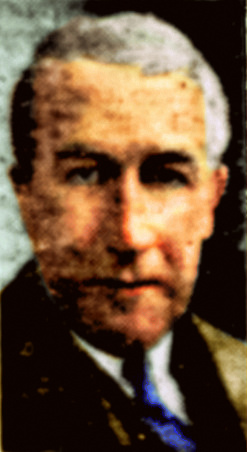
Stokes: Dewey realizing interest of voters in foreign policy
Opposition to ‘Big Four’ alliances believed first step in presenting definite stand
By Thomas L. Stokes, Scripps-Howard staff writer
Washington –
Governor Thomas E. Dewey’s statement on post-war foreign policy, deploring any continuing “Big Four” military alliance that would dominate the small nations, aroused considerable political interest here.
For the Republican presidential candidate thus far has been sparring with his views on an issue of which millions of voters are seemingly predominantly conscious this year and upon which they expect full, free and frank discussion.
It is assumed here that this is merely a beginning, and that Governor Dewey will later elaborate so the public may get a clear picture of how he would handle foreign policy, if elected. This initial statement, in advance of his major campaign speeches, indicates that the Republican candidate realizes the public interest in this issue.
Dewey urged to speak out
Governor Dewey’s advisers have been urging that he had better speak out or President Roosevelt would run away with the ball, being in the favored position of creating policy day by day.
Some Republican strategists think there is a substantial bloc of voters, for example those who feel warmly toward Wendell Willkie, who will be swayed to one party or the other largely on the issue of international collaboration. This includes many persons normally Republican who may be inclined to support the President on this score alone, if Governor Dewey does not satisfy them.
Governor Dewey has quite a job to do in the field of foreign policy. Republicans are on the defensive. The burden of proof is upon them. They must dispel the doubts in many minds, which Democrats are trying to nourish, hanging over from what the Democrats call the “betrayal” by Republicans of the League of Nations after the last war.
And doubts that arise currently about some figures high in Republican councils, include the vice-presidential candidate Governor John W. Bricker, Senators Robert Taft and Arthur H. Vandenberg, and former isolationists such as James S. Kemper (chairman of the Republican Finance Committee) and Werner W. Schroeder of Illinois (a newly-elected vice chairman of the Republican National Committee).
Struck at vulnerable spot
Governor Dewey appropriately seized the occasion of the conference beginning here next week among representatives of this country, Great Britain, Russia and China to issue his statement warning of “Big Four” military domination and “power politics.”
Governor Dewey did strike at a vulnerable point – “power politics.” Many others have been critical of the secret meetings of Allied leaders, at Cairo and Tehran, suspicious of the mystery about decisions that concern all the people.
Secretary of State Cordell Hull quickly denied any thought of a continuing “Big Four” military alliance as Governor Dewey had suggested. The Secretary is naturally sensitive and seriously concerned. He has been working for months on the plans for international organization, carefully, solely, particularly, and it is not all as simple as it might look.
Aside from whatever political motives are involved, the Republican candidate has made a timely contribution in his warning against a “power politics” solution of post-war world organization. And he has whetted curiosity about the complete outline of his post-war international views.

